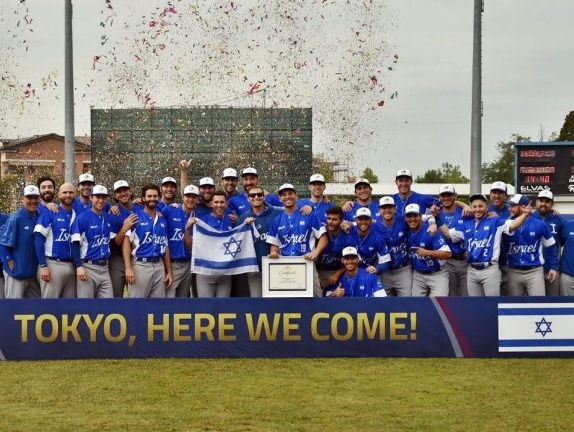Do you Debrief?
- Steve Mortimer
- Sep 8, 2023
- 4 min read
Baseball has created many incredible experiences in my life, playing for Team Israel in the 2020 Olympics might be at the top of the list. The process of retiring from baseball, returning to playing 2 years later, making the team, winning the European Qualifier and going to Tokyo to play against the best players in the world was a dream scenario.
One of the coolest experiences of my Olympic journey with Team Israel was the time we took travel to Israel to make Aliyah. Aliyah is the process of “coming home.” Now, no matter what you believe politically, the process of Aliyah is for anybody around the world with the Jewish creed. I say creed because that’s basically what it is, it’s not a race, it’s not even based on your religious beliefs, its based on your blood and your relationship to the Jewish religion and people. I will not go any further than that on the topic, this isn’t a political post.

Our management team, Eric Holtz, Mitch Glasser, Rob Paller, Matt Soren, and myself made the trip to Israel to experience it for the first time to get our citizenship. There was a lot of paperwork and processes leading up to this point. When we landed and met each other for the first time, we became instantaneous brothers. We all planned to spend the week there, as Peter Kurz had many plans for us. One of the adventures was set up by Team Israel bazaar, Danny Grossman. Danny is a big advocate for the Israel Defense Force, writer, lover of Israel, and baseball lover. He took us to one of the air force bases, and showed us around.
We met a few soldiers and got some time to sit in a room and learn from them. Our manager, Eric Holtz, asked this question:
“What is the best tool you guys use as soldiers?” he asked.
“The debrief is probably our best tool. The room you’re sitting in right now is our best tool. It allows us to discuss our mistakes after our trainings and bounce ideas off our colleagues and listen to them discuss how they have made the same mistake and how they have made adjustments to get better.”
It was a powerful answer for me because I realized that’s kind of what we do in the locker room after games in a professional atmosphere. When there is a group of people discussing what could be done better and what adjustments could be made, many solutions and possibilities come out and everybody gets better. Can you imagine if everybody spent more time debriefing their life? Athletes, students, sons, brothers, husbands, leaders, in all the roles we fill, how much more effective would we be if we were honest with ourselves, and openly discussed things did wrong, what we would change and how we can make adjustments?
THE MOST important part of the debrief process is the ability to let go of one's ego. In order to discuss faults and mistakes, a person must release their ego and be willing to admit they were wrong, made a mistake or failed to think something through. This allows for solutions and ideas to arise and get worked out. If the ego stands in the way, a person becomes defensive, resistant to any solution presented and that person continues to stay the same and continues to make the same mistakes. Adjustments are to be had and people are bound to get better, but what holds us back is our ego. We have to be willing to look in the mirror first and expect at least as much from ourselves as we do from others.
The atmosphere of the debrief cuts right through that! The debrief cuts through the lies our brain tells us that we're stuck or that we can’t get better. We also understand that many others make the same mistake, and with their learnings, we can learn from them and have solutions quicker than they once had.
A second critical piece to an impactful debrief is physical documentation. Debrief notes must be taken, shared, saved and acted upon in the future. Do you take notes on your life? This can be done through journaling, jotting learnings in your phone or quick notes in a notebook. All effective people physically document learnings, save them and reference them in the future. Most sports fans have no idea how much analysis takes place between games and practices. There are entire staffs of people of whose responsibility it is to debrief video, play design, nutrition, treatment, physical training and personnel decisions to determine what didn't work. No ego, no blame, just information exchange and adjustments.
Don't re-plow old ground and continue to limit yourself because "this is the way I've always done it." Embrace the debrief, crave the criticism and improve in every area of your life. Debrief on your own and surround yourself with others who you respect, that will assist in the discovery of opportunities to improve.
Free and Clear.
-Zach Penprase



Comments